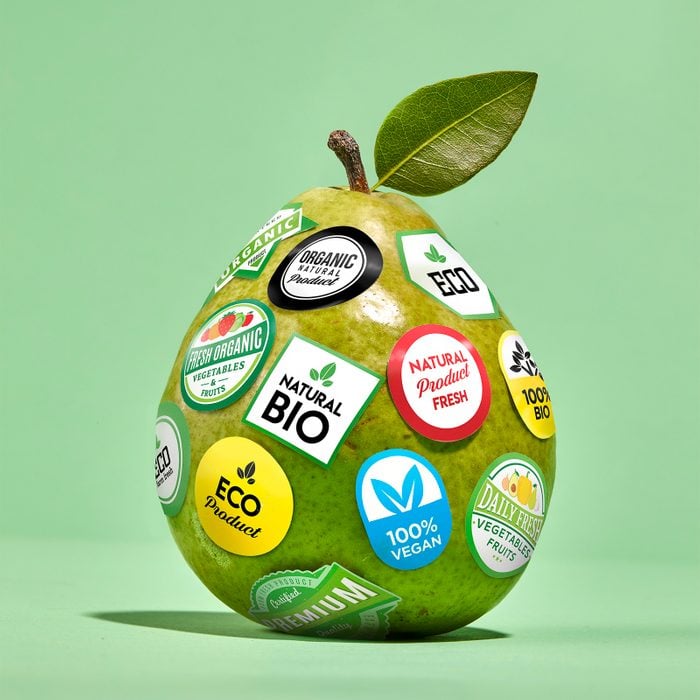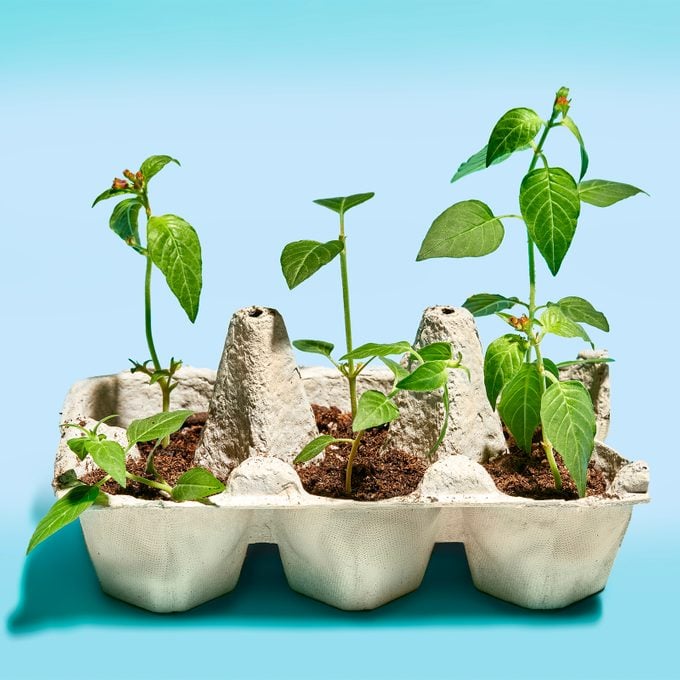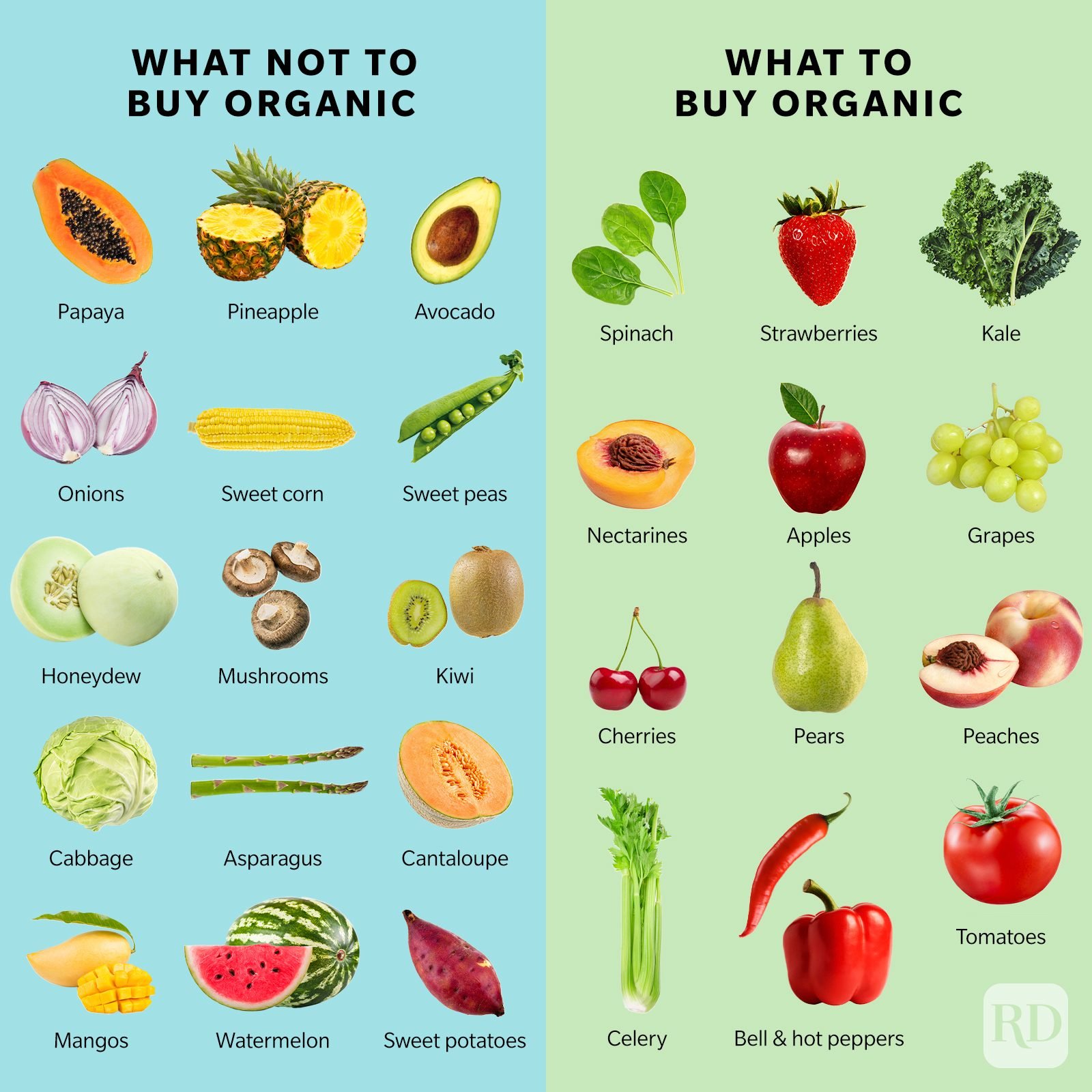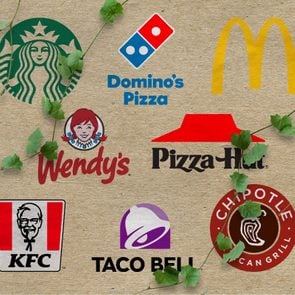What Is Organic Food, and Is It Better for the Earth?
Updated: Sep. 23, 2022

There's a lot of confusion surrounding organic foods, from what the term means to labeling to purported benefits. Read on to learn more about organic food.
Whether you typically shop at supermarkets, farmers markets or big-box stores, chances are there are myriad organic product choices available alongside conventional ones. This jives with the overall trend toward thinking through the environmental impact of our actions for more sustainable living. Sustainable food is a large part of that equation, since food processing takes a significant toll on land and water. Those who are conscious of their carbon footprint might even look to raise their bar higher by buying sustainable fish and seafood or growing food at home. If enough people change their eating habits, the earth could benefit big-time. Read on to learn how organic food plays into sustainable food.
What is organic food?
Organic food is grown without man-made synthetic chemicals such as pesticides and fertilizers and has not been genetically engineered. Though organic foods currently comprise less than 10% of U.S. food sales, statistics show their consumption is rising, and experts expect that upward trajectory to continue.
To be certified organic, food must be grown and processed according to the National Organic Program, which is overseen by the United States Department of Agriculture (USDA). An overview of the program highlights:
- The USDA regulates all organic crops, livestock and agricultural products with approved methods that prize and promote effective resource management, ecological balance and biodiversity.
- Any product bearing the USDA organic seal is certified organic and has at least 95% organic content. Synthetic fertilizers, sewage sludge, irradiation and genetic engineering are not allowed.
- Each year, USDA agents conduct more than 30,000 on-site inspections to verify compliance with organic standards.
Natural vs. organic foods
The USDA requires that foods labeled “natural” be minimally processed and free of any artificial ingredients, certainly both good practices. But natural foods are not held to the same standards as organic foods. It’s a difference that consumers should understand as they weigh their green options.
Local vs. organic foods
Local food generally means food grown or produced near where it is intended to be sold or consumed. Put another way: Local food travels minimally from its point of origin. Per Congress’s 2008 Food, Conservation and Energy Act, a locally or regionally produced food product must stay within 400 miles of its point of origin. But the more commonly used definition of local food is food grown in-state or within 100 miles. Local food, whether organic or not, is better for the environment than food that’s imported or grown across the country, because it travels less to get to your plate.
Glossary of organic terms
Adding to the confusion surrounding organic food is the variety of terms used by organic food sellers. Here’s a cheat sheet:
- 100% organic. Like it sounds, this means the product contains 100% organic ingredients (excluding salt and water, which are considered natural).
- Organic. As mentioned above, for a food to be certified organic, it needs to have a minimum of 95% organic ingredients.
- Made with organic ____. To earn this certification, a product must be made with at least 70% organically produced ingredients.
- Cage-free eggs. All organic eggs are also cage-free, but all cage-free eggs are not organic. As the term suggests, the hens laying the eggs are not caged and are able to roam free with unlimited access to food and water. For eggs to be certified organic, in addition to being cage-free, the hens must eat feed that does not contain animal by-products, synthetic fertilizers, sewage sludge and most pesticides.
Benefits of organic food

It’s grown with fewer pesticides
Although organic fruits and veggies are not entirely pesticide-free, the pesticides that are allowed to be used are produced or extracted from natural sources and are far less toxic than the chemicals used on conventional produce. “Eating organic produce reduces your exposure to pesticide residue and antibiotic-resistant bacteria,” says Linda Fears, a Cornell University–certified nutrition coach and founder of wellness company goodfoodrx.
It’s potentially healthier
While the proof of potential health benefits of organic food is not rock solid, there is some evidence to suggest it’s healthier for you. On the pro side: Organic fruits and veggies may have 20 to 40% more antioxidants than conventional ones, per a review of 343 studies published in the British Journal of Nutrition.
And per a study on organic food and health published by the National Institute of Public Health in Poland, organic foods have been shown to have lower levels of toxic metals and higher levels of vitamin C and polyphenols (plant compounds that offer various health benefits) such as protection against heart disease, type 2 diabetes and some cancers.
But another study published in the British Journal of Cancer found that eating organic food did not affect women’s cancer risk one way or another. More research needs to be done to confirm any potential health effects of organic food.
Certain aspects of it are better for the environment
Organic farming and ranching produce less pollution, conserve water and create healthier soil, including reduced soil erosion. Plus, water runoff from nonorganic farms contains pesticides, fertilizer and animal waste that aren’t used in organic farming. These contaminants threaten to pollute rivers, lakes and other waterways.
Downsides of organic foods
It’s more expensive
A practical consideration about organic food that can’t be ignored is cost, especially at a time when your wallet may already be feeling the pinch of inflation at the grocery store. The main reason organic food is more expensive is the higher costs associated with farming practices that comply with all USDA regulations.
It uses more land
According to an international study out of Chalmers University of Technology in Sweden, the fact that a much bigger area of land is required to farm food organically versus conventionally should factor into any responsible overall cost-benefit analysis of both production methods. Put simply, the more land that is co-opted to fulfill specific criteria needed for organic farming, the more deforestation results. Those sacrificed trees would have absorbed carbon dioxide emissions, which helps slow climate change.
Organic doesn’t equal healthy
Nutrition experts generally agree that organic foods have a lot to recommend them. However, Sally Kuzemchak, a registered dietician at Healthy Family Project and creator of Real Mom Nutrition, offers this important point: An organic cookie is still a cookie. Meaning, just because something is organic, doesn’t mean you can eat as much of it as you want; there are still calories and sugar, fat content and other aspects of a food’s nutritional profile to consider.
Which produce should you always try to buy organic

Each year, the nonprofit Environmental Working Group (EWG), releases its so-called “Dirty Dozen” list, produce that contains the most pesticides based on testing from the USDA and FDA. If you’re picking and choosing what to buy organic, these 12 items should be at the top of the list. In 2022 it includes:
- Strawberries
- Spinach
- Kale
- Nectarines
- Apples
- Grapes
- Bell and hot peppers
- Cherries
- Peaches
- Pears
- Celery
- Tomatoes
Which produce can you buy conventional?
EWG also creates a “Clean 15” list of produce with the least amount of pesticides based on the USDA and FDA info. In 2022 the list includes:
- Avocados
- Sweet corn
- Pineapple
- Onions
- Papaya
- Frozen sweet peas
- Asparagus
- Honeydew melon
- Kiwi
- Cabbage
- Mushrooms
- Cantaloupe
- Mangos
- Watermelon
- Sweet potatoes
Clearly, consumption of organic foods can be complicated, because nutritional benefits, potential climate considerations and higher costs are all factors. But there’s never been a better time to learn more about an overall earth-wise lifestyle. When it comes to lowering your carbon footprint, everything from the way you recycle to how you think of food waste can have an impact. Even the clothes you buy can be part of an overall strategy to be more eco-friendly. All told, learning everything you can about environmental sustainability and carefully considering alternatives are stepping stones to a greener life and healthier earth.
Sources:
- Linda Fears, Cornell University–certified nutrition coach and founder of wellness company goodfoodrx
- British Journal of Nutrition: “Higher Antioxidant and Lower Cadmium Concentrations and Lower Incidence of Pesticide Residues in Organically Grown Crops: A Systematic Literature Review and Meta-Analyses”
- Polish National Institute of Public Health: “Organic Food and Health”
- British Journal of Cancer: “Organic Food Consumption and the Incidence of Cancer in a Large Prospective Study of Women in the United Kingdom”
- Chalmers University of Technology: “Organic Food Worse for the Climate”
- Sally Kuzemchak, registered dietician at Healthy Family Project and creator of Real Mom Nutrition



